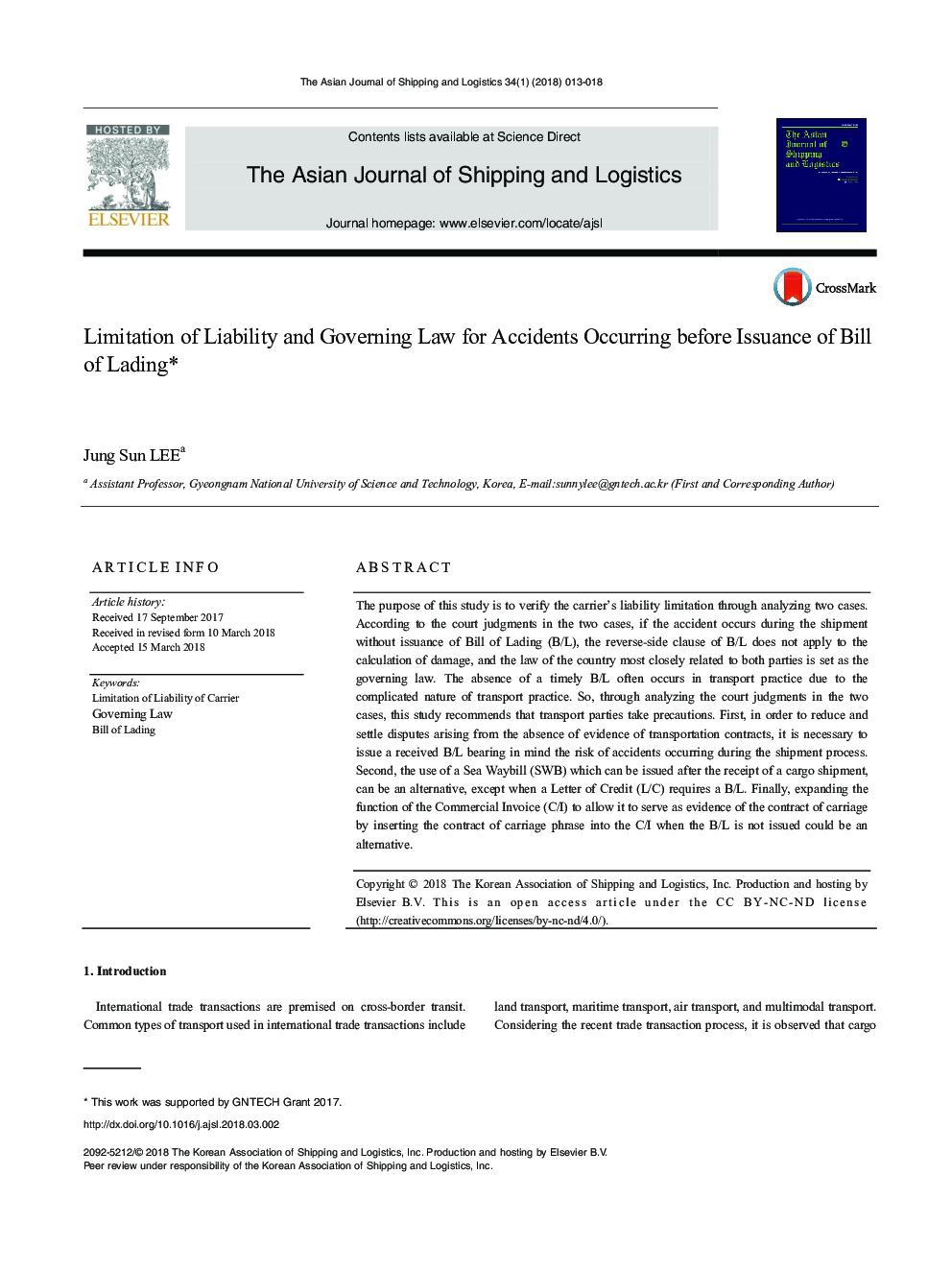| Article ID | Journal | Published Year | Pages | File Type |
|---|---|---|---|---|
| 7395915 | The Asian Journal of Shipping and Logistics | 2018 | 6 Pages |
Abstract
The purpose of this study is to verify the carrier's liability limitation through analyzing two cases. According to the court judgments in the two cases, if the accident occurs during the shipment without issuance of Bill of Lading (B/L), the reverse-side clause of B/L does not apply to the calculation of damage, and the law of the country most closely related to both parties is set as the governing law. The absence of a timely B/L often occurs in transport practice due to the complicated nature of transport practice. So, through analyzing the court judgments in the two cases, this study recommends that transport parties take precautions. First, in order to reduce and settle disputes arising from the absence of evidence of transportation contracts, it is necessary to issue a received B/L bearing in mind the risk of accidents occurring during the shipment process. Second, the use of a Sea Waybill (SWB) which can be issued after the receipt of a cargo shipment, can be an alternative, except when a Letter of Credit (L/C) requires a B/L. Finally, expanding the function of the Commercial Invoice (C/I) to allow it to serve as evidence of the contract of carriage by inserting the contract of carriage phrase into the C/I when the B/L is not issued could be an alternative.
Related Topics
Social Sciences and Humanities
Economics, Econometrics and Finance
Economics, Econometrics and Finance (General)
Authors
Jung Sun (Assistant Professor),
